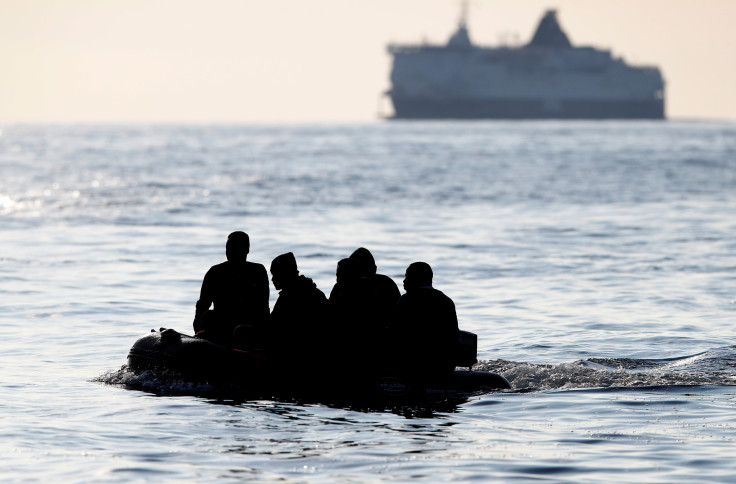Britain and Turkey align to work together on stopping illegal migration entries
The two nations are bolstering their relationship so that immigration crimes and illegal migration entries can be heavily cracked down on.

Britain and Turkey have struck a partnership to clamp down on illegal migration entries and will do so by having law enforcement officers of both nations stamp out acts of organised immigration crime.
Also, the officers will look to put a dent in the supply chain that goes around for boat pieces and parts that are utilised in the journeys made by illegal migrants.
Partnering with Turkey to handle this issue is Britain's latest move in attempting to bolster its ties with other nations to push back on illegal migration entries. Forging new connections is crucial to Prime Minister Rishi Sunak's play of action in halting the crime involved with smugglers getting migrants to cross into Britain.
The cooperation formed by both Britain and Turkey has been in the works for a little while as Immigration Minister, Robert Jenrick, flew out to Turkey last month as part of a trip across Europe to forge alliances with other nations over dealing with illegal migration entries and cutting off smuggler routes.
Other countries visited by Jenrick in addition to Turkey included Tunisia, Belgium and Italy. Whilst in Europe, he paid a visit to Kapikule, the most active and biggest border crossing point in the continent and which separates Turkey and Bulgaria.
This operation by the two nations is the latest in its strengthened relationship and Britain has given the go-ahead to the Turkish National Police to operate out of a new base in Turkey that will be used to deal with organised immigration crime. British and Turkish intelligence will be aligned more easily as a result of the law enforcement agencies of both countries deepening their ties, which should result in key information being acted on quicker.
Key information will include custom feeds and intelligence feeds being shared between the British and Turkish authorities at a larger and faster rate, with a new memorandum of understanding to be agreed upon by the parties to cover all this.
At the new centre in Turkey, the Turkish-based Home Office Intelligence and National Crime Agency (NCA) officials from Britain will work together with their Turkish equivalents whilst further British staff will be sent out to Turkey.
The Immigration Minister explained the cooperative actions being taken by Britain in fighting illegal migrant entries. He stated: "Having met our partners in Europe, North Africa and indeed Türkiye recently, I've seen first-hand the benefits our increased cooperation has on stopping the boats. I am determined that the UK is a leading force in tackling illegal migration."
Home Secretary, Suella Braverman also touched on Britain's alignment with Turkey in regard to this issue. She said: "We must do everything we can to smash the people smuggling gangs and stop the boats. Our partnership with Türkiye, a close friend and ally, will enable our law enforcement agencies to work together on this international problem and tackle the small boat supply chain."
A major part of smugglers orchestrating illegal migration entries into Britain revolves around the supply chain of boat parts and small boats throughout Europe which they are able to get their hands on. Approximately every year there will be a large amount of boat parts and small boats transported across the continent for the sole purpose of aiding people to migrate to certain countries.
The upcoming Migration Dialogue meeting with Britain and Turkey later this year in London will be a display of the heightened relationship and engagement between the two nations in dealing with what they view as a large issue. As well as the upcoming Migration Dialogue, other worldwide platforms will be of use to the two countries to allow them to present their concerns about illegal migration entries.
As well as Turkey, Britain has also strengthened partnerships with other nations in recent times including France and Albania over migrant crossings and struck new deals with nations such as Georgia and Bulgaria.
Britain reinforcing its relations with Albania has led to a massive 90 per cent drop in small boat crossings bringing Albanians into Britain from the first quarter of 2023, with over 1,800 migrants from Albania being flown back since December of last year.
© Copyright IBTimes 2025. All rights reserved.






















